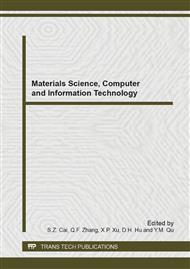p.3344
p.3349
p.3354
p.3359
p.3363
p.3367
p.3371
p.3375
p.3379
Fatigue Loads Prediction Based on a Hybrid Road Approach
Abstract:
Based on a hybrid road approach, a reliable process of fatigue load prediction is proposed. This approach known as Time Waveform Replication (TWR) relies on test data and multi-body model. The test data is used to back-calculate the hybrid road profile that will cause the same forces on the multi-body model. The road load is measured on the proving ground, and simulation of the multi-body model is ran by TWR to back-calculate the hybrid road profile. The simulation signals are verified by the experimental signals collected by wheel force transducers (WFT) and acceleration sensors.
Info:
Periodical:
Pages:
3363-3366
Citation:
Online since:
July 2014
Authors:
Keywords:
Price:
Сopyright:
© 2014 Trans Tech Publications Ltd. All Rights Reserved
Share:
Citation:


